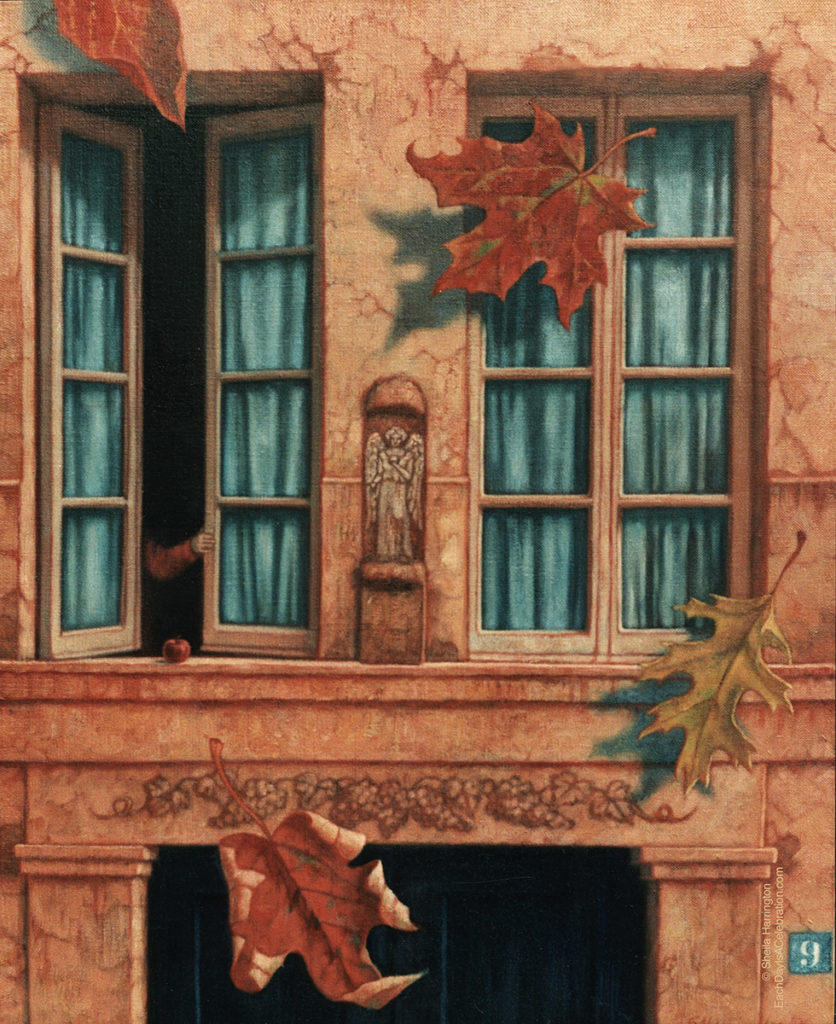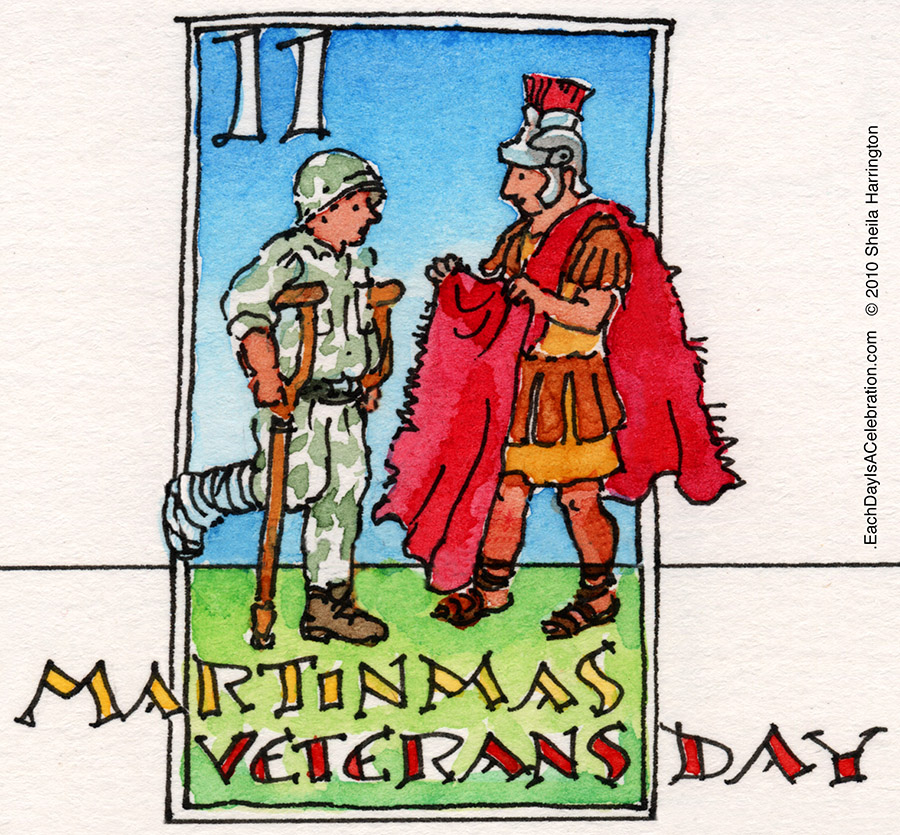Another confluence of festivals: Palm Sunday / St. Patrick’s Day.

For the first day of fall, a poem by Paul Verlaine. Translation by Arthur Symons.

Les sanglots longs
Des violons
De l’automne
Blessent mon coeur
D’une langueur
Monotone.
Tout suffocant
Et blême, quand
Sonne l’heure,
Je me souviens
Des jours anciens
Et je pleure
Et je m’en vais
Au vent mauvais
Qui m’emporte
Deçà, delà,
Pareil à la
Feuille morte.
—Paul Verlaine (1844-1896)
When a sighing begins
In the violins
Of the autumn-song,
My heart is drowned
In the slow sound
Languorous and long
Pale as with pain,
Breath fails me when
The hours tolls deep.
My thoughts recover
The days that are over
And I weep.
And I go
Where the winds know,
Broken and brief,
To and fro,
As the winds blow
A dead leaf.

Today is Veterans’ Day, instituted first as Armistice Day after WWI, then Veterans’ Day after WWII (although my mother occasionally still called it Armistice Day) as a tribute to veterans of both world wars. It’s also the Feast of Martinmas, which is less well known in this country, although having been raised Catholic I grew up familar with the story of Saint Martin of Tours. It seems somehow fitting that Veterans Day is celebrated on the festival of a former Roman soldier.
Martin was born in the 4th century in what later became Hungary but what was then Pannonia, a province of the Roman Empire. His father, an important officer in the Roman army, naturally expected his son to follow in his footsteps. Martin had been named for Mars, the god of war, presumably to encourage that military spirit. But apparently young Martin was an easy-going, sociable fellow, more curious about strangers, and generous with handouts, than aggressive toward them, so to get him into the army his father arranged for his kidnapping and forcible enlistment by his soldiers, hoping that Martin would grow accustomed to military life through daily exposure. I bet Dad didn’t get many loving letters from the front. Today this method of recruitment is frowned upon.
However, there was Martin, a soldier at last, obliged to serve the Emperor for three years, outfitted with a Roman uniform and a sword. Even in the army, Martin was open-handed, and his military salary usually found its way into the hands of the unfortunate. His unit was sent to Gaul, as part of an ongoing attempt to civilize the native barbarians. Civilization in Gaul was eventually attained at a level far beyond their wildest dreams, but that’s another story.
One winter day, the story goes, Martin arrived at the gates of Amiens, where he encountered a poor ragged beggar shivering by the side of the road. Martin had already given away all his extra clothing, but, taking pity on the beggar, Martin unsheathed his sword and cut his warm woolen (army-issue, uh-oh) cloak in half and wrapped one half around him.
That night, Martin dreamed that Jesus appeared to him wrapped in Martin’s half-cloak saying, “Martin has covered me with this garment.” This made him determined to leave the army permanently, at the end of his term. When he attempted it, however (inconveniently during a barbarian invasion), he was accused of cowardice, in response to which he offered to advance alone against the enemy. Instead he was imprisoned. Eventually he was released at the conclusion of an armistice, and was finally able to pursue his vocation, settling in Gaul, founding an order, living very simply and developing a reputation for feeding the hungry and healing the sick.
Over the years our homeschooling group celebrated Martinmas (sometimes in combination with Diwali, Festival of Light, which can occur at around the same time—this year it falls on the 14th) with storytelling, a night-time walk in the park carrying lanterns and singing songs about light, and afterward gathering to share dessert. Happy Martinmas! Happy Diwali! Happy Veterans Day, everyone!
(A re-post from an earlier year.)
Wishing everyone a joyous, loving, and peaceful season. And, in that spirit, here is a poem by Tennyson for Christmas Day.
Ring out, wild bells, to the wild sky,
The flying cloud, the frosty light;
The year is dying in the night;
Ring out, wild bells, and let him die.
Ring out the old, Ring in the new,
Ring, happy bells, across the snow:
The year is going, let him go;
Ring out the false, Ring in the true.
Ring out the grief that saps the mind,
For those that here we see no more,
Ring out the feud of Rich and poor,
Ring in Redress to all mankind.
Ring out a slowly dying cause,
And ancient forms of party strife;
Ring in the nobler modes of life,
With sweeter manners, purer laws.
Ring out the want, the care the sin,
The faithless coldness of the times;
Ring out, Ring out my mournful Rhymes,
But Ring the fuller minstrel in.
Ring out false pride in place and blood,
The civic slander and the spite;
Ring in the love of truth and Right,
Ring in the common love of good.
Ring out old shapes of foul disease,
Ring out the narrowing lust of gold;
Ring out the thousand wars of old,
Ring in the thousand years of peace.
Ring in the valiant man and free,
The larger heart, the kindlier hand;
Ring out the darkenss of the land,
Ring in the Christ that is to be.
—Alfred, Lord Tennyson
Ann
Stephanie
Noah
Tony
Nevin